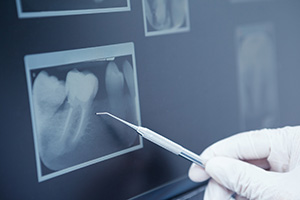 It’s no big surprise that using tobacco products is one of the worst things you can do for your health. Not only do they wreak havoc on your heart, lungs, skin, and circulatory system, they can also cause irreversible damage to your teeth. Below, we’ve listed just a few of the ways smoking and tobacco use affects your oral health, and how quitting can help reverse some of the damage.
It’s no big surprise that using tobacco products is one of the worst things you can do for your health. Not only do they wreak havoc on your heart, lungs, skin, and circulatory system, they can also cause irreversible damage to your teeth. Below, we’ve listed just a few of the ways smoking and tobacco use affects your oral health, and how quitting can help reverse some of the damage.
1. The Minor Problems
Bad breath and yellow teeth are among several smaller issues tobacco can cause. The smell of smoke can linger in rooms, fabrics and, yes, on your breath, because the tar, nicotine, and other chemicals adhere to your mouth and get into your lungs. For people who use tobacco occasionally, regular brushing and use of mouthwash can help keep the smoky or rancid breath at bay, but for chronic users these methods may not be as effective. Once you quit tobacco, your body will rid itself of the extra bacteria tobacco introduced, and the bad breath will likely go away.
Yellow or discolored teeth are also a side effect of tobacco use. The tar, nicotine, and chemicals in these products deposit themselves on the teeth, causing stains that are difficult or impossible to remove. After you quit smoking, a professional whitening by your dentist may help lighten your teeth, but prolonged use may cause stains that are impossible to remove.
2. The Bigger Problems
One of the more severe side effects of prolonged tobacco use is damage to your immune response. Though it may seem counterintuitive, smokers and tobacco users often have less inflammation in their mouths than non-users, because of how the smoke and chemicals can restrict blood flow and damage blood vessels. So, while tobacco products may be wreaking havoc in your mouth, the signs may not be immediately apparent because your body no longer has a proper response to irritants.
Tooth decay is another prominent side effect of tobacco use. The sticky tar and nicotine that adheres to and discolors teeth also attracts bacteria that will eat away at the tooth and even the bone along the jawline, eventually causing teeth to fall out. But, because of how the chemicals in cigarettes and tobacco products damage a person’s healing ability, dental implants often fail in smokers, leaving dentures as the only remaining way to fix your smile.
3. The Major Damage
As if the problems above weren’t bad enough, tobacco use can cause even more severe damage to your mouth, teeth, and overall health. Firstly, the combination of increased bacteria in the mouth and the body’s decreased ability to heal often leads to gum disease, which in turns leads to loss of bone and tissue in the gum line. Although gum disease can be reversible if caught and treated early enough, continued tobacco use will more than likely continue the progression of the disease even with dental intervention.
As tobacco use continues over several years, “pre-cancer” called leukoplakia will become apparent in the mouth in the form of thick, white patches on the tongue and the insides of the cheeks. A specialist will take biopsies of these patches and send them out for testing to see if they are cancerous. If so, they will be removed.
If tobacco use continues even though precancerous leukoplakia, oral cancers will most likely develop. Many of the chemicals in cigarettes and tobacco products are known carcinogens, and repeatedly exposing your system to these cancer-causing agents will greatly increase your likelihood of developing at least one form of the disease, which can affect the esophagus, throat, nasal cavity, floor of the mouth, sinuses, lips, and voice box — not to mention that oral cancers can spread to other areas of the body as well.
The best way to prevent damage to your mouth and your overall health is to stay away from tobacco products entirely or try to quit as soon as possible. Your body has an incredible ability to heal itself, and many effects that tobacco products have on your mouth can be lessened or reversed once you kick the habit. However, prolonged exposure to the dangerous chemicals in these products will cause irreversible and life-threatening damage to your mouth and many other areas of your body. We’re here to help — if you’re ready to quit tobacco, or if you’re worried about how tobacco has affected your oral health, give us a call today.







Leave a Reply